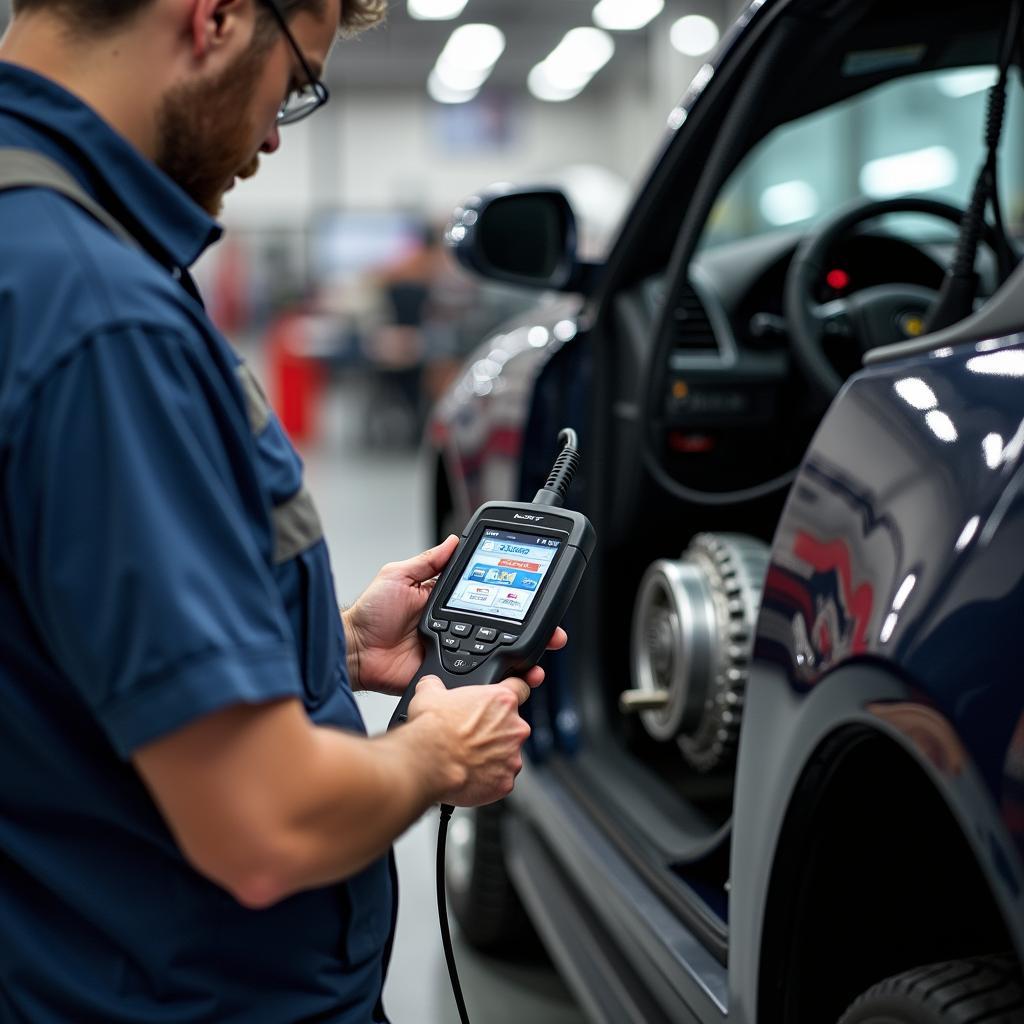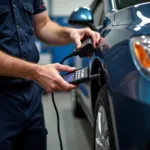Jerking acceleration, strange noises, or increased fuel consumption – these can all be signs of a failing torque converter. But how can you reliably identify the symptoms of a transmission issue, and what steps should you take? This article provides comprehensive information on ‘Torque Converter Symptoms’ so you can act quickly and effectively.
What Are Torque Converter Symptoms?
‘Torque Converter Symptoms’ describes the various signs that point to a defect in the torque converter, a crucial component of the automatic transmission. Also known as a hydraulic coupling, the torque converter transfers power from the engine to the transmission, enabling smooth starts and shifts. A defect can have severe consequences and compromise your vehicle’s drivability.
The Torque Converter: The Heart of the Automatic Transmission
The torque converter is a complex component that operates hydraulically. It consists of a pump, a turbine, and a stator. Simply put, the pump creates an oil flow that drives the turbine, enabling power transfer. A defect can occur in any of these components.
Typical Torque Converter Symptoms
A failing torque converter shows various symptoms. Sometimes they are subtle, sometimes obvious. Here are some of the most common signs:
- Jerking During Shifts: Jerky shifting behavior, especially during gear changes, can indicate a failing torque converter. The car might ‘hesitate’ during shifts or accelerate unevenly.
- Vibrations: Vibrations in the vehicle, particularly in the transmission area, can be another symptom. These vibrations might be stronger in certain RPM ranges.
- Grinding or Whining Noises: Unusual noises, such as grinding or whining sounds coming from the transmission area, often point to a problem with the converter.
- Transmission Overheating: A failing torque converter can cause the transmission to overheat. Pay attention to the temperature gauge or warning lights.
- Increased Fuel Consumption: A failing converter can significantly increase fuel consumption because power transfer is no longer efficient.
- Transmission Slippage: The feeling that the transmission is ‘slipping’ and not transferring power correctly can also indicate a converter defect.
 Car jerking during a shift, indicating a bad torque converter
Car jerking during a shift, indicating a bad torque converter
As Robert Müller, a transmission specialist and author of “Modern Automatic Transmissions,” notes in his book: “Early detection of torque converter symptoms is crucial to prevent further damage to the transmission.”
What to Do About Torque Converter Symptoms
Should you notice one or more of these symptoms, it is advisable to visit a repair shop immediately. Early diagnosis can prevent expensive repairs. A professional technician can identify the fault using specialized diagnostic equipment and take the necessary action.
Benefits of Early Diagnosis
Early diagnosis of a torque converter defect offers numerous benefits:
- Avoiding Further Damage: A failing torque converter can damage other parts of the transmission. Early repair prevents costly consequential damage.
- Maintaining Drivability: A severe torque converter defect can impair your vehicle’s drivability. Timely repair ensures safety on the road.
- Cost Savings: The earlier the defect is detected, the lower the repair costs typically are. A complete transmission replacement is significantly more expensive than repairing individual components.
 Car being diagnosed in a repair shop to avoid further transmission damage
Car being diagnosed in a repair shop to avoid further transmission damage
Frequently Asked Questions About Torque Converter Symptoms
- Can I keep driving with a failing torque converter? It is not recommended to continue driving with a failing torque converter. This can lead to further damage to the transmission.
- How much does it cost to repair a torque converter? The cost varies depending on the vehicle model and the extent of the damage. An accurate diagnosis at a repair shop is necessary.
- Can I repair the torque converter myself? Repairing a torque converter requires specialized tools and expertise. It is therefore advisable to leave the repair to a professional.
More Helpful Information on Car Auto Repair
On Car Auto Repair, you can find more useful articles on car repair and diagnosis:
- Transmission Fluid Change: When and Why?
- Automatic Transmission Problems: Causes and Solutions
Torque Converter Symptoms: Act Now!
Don’t hesitate to visit a repair shop if you suspect a torque converter defect. Our experts at Car Auto Repair are here to help with advice and assistance. Contact us now for a free consultation!
Summary: Get Quick Help for Transmission Issues
A failing torque converter can manifest through various symptoms, such as jerking, vibrations, or noises. Early diagnosis is crucial to prevent further damage. Contact us at Car Auto Repair, we are happy to assist you!

